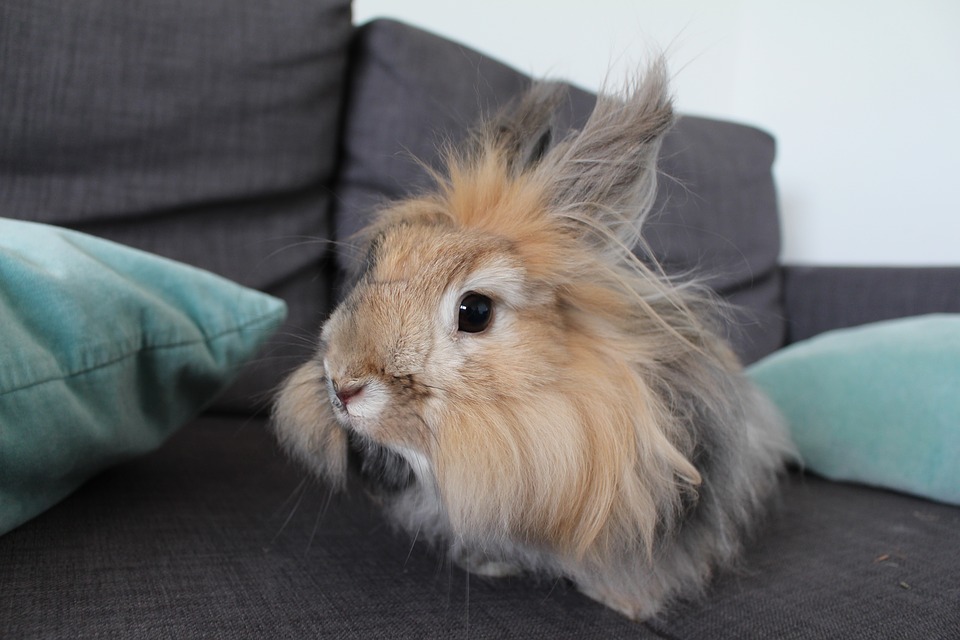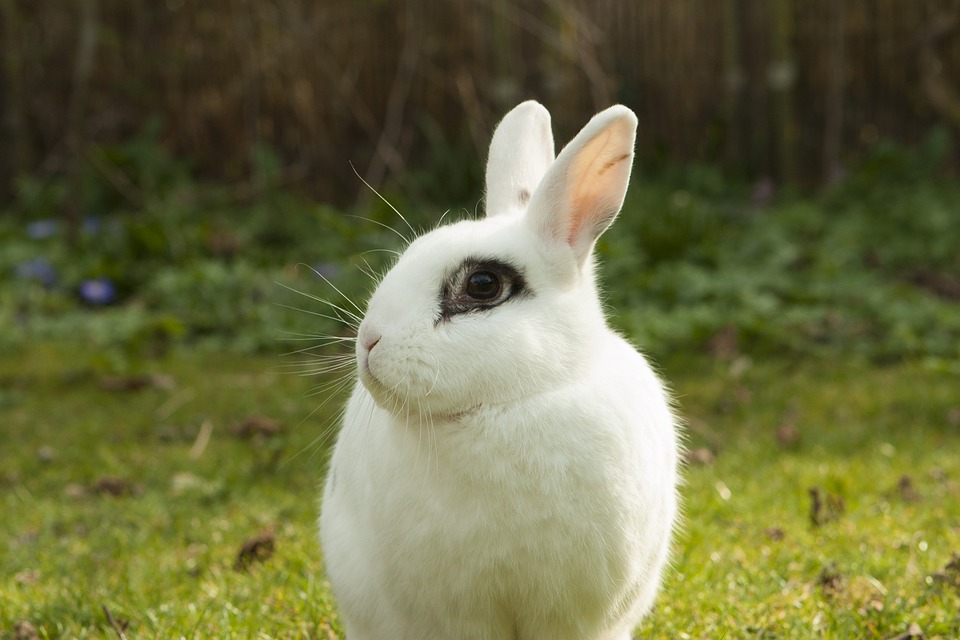This comprehensive guide explores the lifespan of bunny rabbits, providing insights into the factors influencing their longevity, from genetics and lifestyle to nutrition and healthcare. We'll delve into the average lifespan of various breeds, unravel the intricacies of rabbit biology, and examine common health issues that can impact their lifespan. We'll also discuss ways to promote a long and fulfilling life for your furry companion.
Part 1: The Basics of Rabbit Lifespan

1.1 Defining the Average Lifespan
- The average lifespan of a domestic rabbit is generally considered to be between 5 and 8 years.
- However, rabbits can live much longer with proper care and attention to their specific needs.
- Many rabbits have been known to live well beyond 10 years, with some even reaching the remarkable age of 15 years.
1.2 Factors that Influence Lifespan
- Genetics: Just like humans, rabbits inherit traits from their parents, including predispositions to certain diseases.
- Environment: The quality of a rabbit's living space, including cage size, enrichment, and opportunities for exercise, significantly impacts their overall health and lifespan.
- Nutrition: A well-balanced diet of fresh hay, vegetables, and a small amount of rabbit pellets is crucial for a rabbit's well-being and longevity.
- Healthcare: Regular veterinary check-ups, vaccinations, and prompt treatment for health issues are essential for extending a rabbit's lifespan.
- Stress: Chronic stress can negatively impact a rabbit's immune system, making them more susceptible to diseases.
Part 2: Exploring Rabbit Biology

2.1 The Intricacies of Rabbit Teeth
- Rabbits have continuously growing teeth, which require constant wear through chewing to prevent overgrowth.
- Overgrown teeth can cause pain, difficulty eating, and eventually lead to starvation, significantly impacting lifespan.
- Regular dental checks by a veterinarian are crucial for maintaining good dental health and preventing complications.
2.2 The Digestive System and its Unique Needs
- Rabbits have a complex digestive system designed to efficiently process their high-fiber diet.
- They rely heavily on gut bacteria to aid in digestion, making them susceptible to gastrointestinal issues like stasis, a condition where food stops moving through the digestive tract.
- A balanced diet with plenty of fiber, regular exercise, and low stress levels are vital for maintaining a healthy digestive system.
2.3 The Importance of Socialization and Enrichment
- Rabbits are social animals and thrive in environments where they can interact with other rabbits or their human companions.
- A stimulating environment with enrichment items like tunnels, toys, and chew toys can prevent boredom and promote mental well-being.
- Social interaction and mental stimulation can reduce stress and improve overall health, contributing to a longer lifespan.
Part 3: Breed-Specific Lifespan Considerations
3.1 Breed Variations and Lifespan Expectations
- Certain breeds, like the Dutch rabbit, are known for their longer lifespans, often exceeding 8 years, while others, like the French Lop, may have shorter lifespans, typically around 5-6 years.
- The size of a breed can also influence lifespan, with smaller breeds often living longer than larger breeds.
- Genetics plays a significant role in lifespan, with some breeds being more susceptible to certain diseases.
3.2 The Importance of Responsible Breeding
- Responsible breeders prioritize the health and well-being of their rabbits, selecting breeding pairs with minimal genetic predispositions to health problems.
- By supporting ethical breeders, you can increase the chances of owning a healthy rabbit with a longer lifespan.
Part 4: Common Health Issues Affecting Lifespan
4.1 Dental Problems: A Frequent Concern
- Dental issues are one of the most common health problems in rabbits, primarily due to their continuously growing teeth.
- Overgrown teeth can lead to pain, difficulty eating, and even starvation.
- Regular dental checks by a veterinarian are crucial for early detection and treatment.
4.2 Gastrointestinal Problems: A Complex Matter
- Gastrointestinal issues, such as stasis, are prevalent in rabbits and can be life-threatening.
- Factors like a diet low in fiber, lack of exercise, and stress contribute to these problems.
- Prompt veterinary attention is vital for treating gastrointestinal issues and preventing complications.
4.3 Urinary Tract Infections: A Common Issue in Females
- Urinary tract infections are common in rabbits, particularly in females, and can cause discomfort and potentially lead to kidney problems.
- Symptoms include frequent urination, straining to urinate, and blood in the urine.
- Prompt veterinary treatment is crucial to prevent complications.
4.4 Ear Infections: A Source of Pain and Discomfort
- Ear infections can cause pain, head tilt, and discharge from the ears.
- They are often caused by parasites or bacteria.
- Treatment typically involves medications and cleaning of the ear canal.
4.5 Respiratory Infections: A Serious Threat
- Rabbits can develop respiratory infections, such as pneumonia, which can be fatal.
- Symptoms include sneezing, coughing, labored breathing, and nasal discharge.
- Veterinary treatment is essential for managing respiratory infections.
Part 5: Promoting a Long and Healthy Life for Your Rabbit
5.1 Providing a Safe and Stimulating Environment
- A spacious cage with ample room for movement and exploration is crucial for a rabbit's well-being.
- Enrichment items, such as tunnels, toys, and chew toys, provide mental stimulation and prevent boredom.
- Regular exercise, such as supervised playtime outside the cage, is essential for physical and mental health.
5.2 Maintaining a Balanced Diet
- Hay should form the majority of a rabbit's diet, providing essential fiber for digestive health.
- Fresh vegetables should be offered daily, providing vitamins and minerals.
- Pellets should be offered in limited quantities as a supplement to the hay and vegetables.
- Avoid giving rabbits treats that are high in sugar or fat.
5.3 Regular Veterinary Check-Ups
- Annual veterinary check-ups are essential for detecting any health problems early.
- Vaccinations against rabbit diseases, such as myxomatosis and viral haemorrhagic disease, are recommended.
- Prompt treatment for any health issues can significantly improve a rabbit's chances of recovery and longevity.
5.4 Observing for Signs of Illness
- Being observant of your rabbit's behaviour and appearance can help detect early signs of illness.
- Changes in appetite, energy levels, bowel movements, or behaviour may indicate a health problem.
- Prompt veterinary attention is crucial for any suspected illness.
5.5 Understanding the Signs of Ageing in Rabbits
- Older rabbits may become less active and more prone to sleeping.
- They may develop age-related conditions, such as arthritis, cataracts, or dental problems.
- It's important to provide extra care and support to ageing rabbits to ensure their comfort and quality of life.
Part 6: FAQs
6.1 How can I tell my rabbit's age?
- It's difficult to determine a rabbit's exact age, especially if you've adopted it from a shelter.
- You can estimate its age based on its size, teeth, and general health condition.
- A veterinarian can provide a more accurate assessment based on dental wear and other physical characteristics.
6.2 What can I do to extend my rabbit's lifespan?
- Provide a stimulating environment with ample space, enrichment items, and regular exercise.
- Maintain a balanced diet rich in hay, fresh vegetables, and a small amount of pellets.
- Ensure regular veterinary check-ups, vaccinations, and prompt treatment for any health issues.
- Observe your rabbit for any signs of illness and seek veterinary attention immediately.
6.3 Is it normal for a rabbit to lose weight as it gets older?
- It's not uncommon for rabbits to lose some weight as they age, but significant weight loss should be investigated by a veterinarian.
6.4 Can I do anything to prevent my rabbit from developing health problems?
- While you can't completely prevent all health problems, providing optimal care can significantly reduce their risk.
- Maintain a balanced diet, provide a stimulating environment, ensure regular veterinary check-ups, and observe for any signs of illness.
6.5 What are the signs of an ageing rabbit?
- Older rabbits may become less active and more prone to sleeping.
- They may develop age-related conditions, such as arthritis, cataracts, or dental problems.
- It's important to provide extra care and support to ageing rabbits to ensure their comfort and quality of life.
6.6 Can I give my rabbit human food?
- Many human foods are harmful to rabbits, including chocolate, onions, garlic, and lettuce.
- Always consult with a veterinarian or a rabbit-savvy expert before offering your rabbit any human food.
6.7 How do I know if my rabbit is in pain?
- Signs of pain in rabbits can be subtle. Look for changes in behavior, such as lethargy, decreased appetite, hunched posture, and reluctance to jump or move.
- If you suspect your rabbit is in pain, consult a veterinarian immediately.
6.8 What are the best ways to bond with my rabbit?
- Rabbits can be affectionate companions with patience and understanding. Spend quality time with your rabbit, providing gentle strokes, offering favorite treats, and allowing them to explore your lap.
- Avoid forcing interaction and allow them to come to you.
6.9 How can I make my rabbit's environment more stimulating?
- Provide a variety of toys, tunnels, and hiding places. Offer different types of hay, fresh herbs, and leafy greens.
- Give your rabbit opportunities for supervised playtime outside their cage.
Everyone is watching
-

Do Rabbits Lay Eggs? (The Surprising Truth)
OTHER TYPES OF PETSThis article will unravel the common misconception that rabbits lay eggs, exploring the fascinating world of r...
-

Can Rabbits Eat Grapes? A Guide to Safe Rabbit Treats
OTHER TYPES OF PETSThis comprehensive guide will explore the safety and suitability of grapes for rabbits, providing detailed inf...
-

What's a Group of Rabbits Called? (A Comprehensive Guide)
OTHER TYPES OF PETSThis article delves into the fascinating world of rabbits, exploring the various terms used to describe a grou...
-

Predators That Hunt Rabbits: A Guide to Natural Enemies
OTHER TYPES OF PETSI've always been fascinated by the circle of life, that delicate dance between predator and prey. Growing up ...
-

Are Rabbits Nocturnal Animals?
OTHER TYPES OF PETSThe question of whether rabbits are nocturnal animals is a fascinating one, with a surprisingly complex answer...
